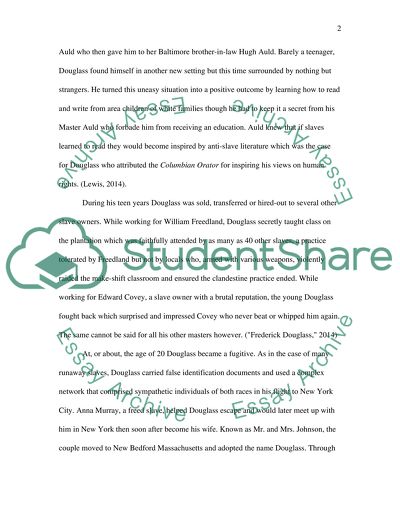Cite this document
(“Frederick douglass Essay Example | Topics and Well Written Essays - 1250 words”, n.d.)
Retrieved from https://studentshare.org/history/1666812-frederick-douglass
Retrieved from https://studentshare.org/history/1666812-frederick-douglass
(Frederick Douglass Essay Example | Topics and Well Written Essays - 1250 Words)
https://studentshare.org/history/1666812-frederick-douglass.
https://studentshare.org/history/1666812-frederick-douglass.
“Frederick Douglass Essay Example | Topics and Well Written Essays - 1250 Words”, n.d. https://studentshare.org/history/1666812-frederick-douglass.


